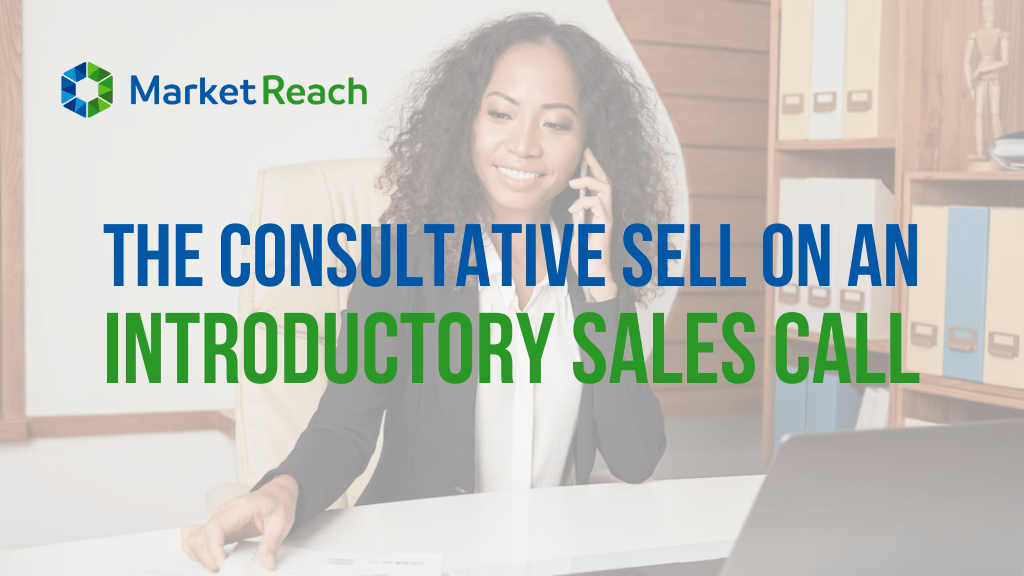
The Consultative Sell on an Introductory Sales Call
Ask Questions To Learn About Your Prospects’ Wants And Needs
It is easy to fall into the trap of “I’m calling to give you a quote” rather than engaging in a meaningful dialogue. Asking good questions is the best way to learn more about your prospect’s needs and desires while, at the same time, building rapport. Rather than being viewed as “another Insurance agent”, you will become a valued advisor. This technique is referred to as consultative selling.
It would be easy if there was one right set of questions to ask that would always guarantee responses that we want. The best approach is to create a mix of open-ended questions that get your prospect talking, along with questions that easily yield a “yes” response or get the prospect thinking of what their current broker is NOT doing for them.
Your open-ended questions, also known as “fact-finding” questions, allow the conversation to progress into the inevitable “solution” of what your company can offer, which then, leads to the appointment.
Some of our favorite general fact-finding questions are:
- Tell me how you’re currently handling that right now.
- What do you like about how that relationship is going?
- What kind of improvements would you like to see outside of a lower rate of course?
Insurance-specific fact-finding question examples:
Cyber targeting: Do you keep sensitive data on hand, either hard-copy or digitally?
- You’ve probably heard that last year companies in the USA paid out over $700 million in malware attacks, so, what are your thoughts about how you’re covered for cyber liability and data breach?
Bond targeting: How do you feel about the terms of your Indemnity clause?
Health targeting: Tell me about the type of plan are you in currently (and how was it chosen). For example… <give prospect example of what you’re asking>
Let’s not forget to collect information from the screener, Executive Assistant and other colleagues. Asking useful, fact-finding questions to those you speak to on the way to the decision maker offers invaluable information to not only better prepare you, but to show credibility, that you’ve done research. You turn a cold call into a warm call when you utilize colleagues around the decision maker to provide insight.
At the most basic level, the questions you ask the screener are designed to qualify that the decision-maker has authority. Probing with the correct questions will unveil if there are multiple decision makers and influencers. There is no point in wasting your time scheduling an appointment that won’t have all the key players involved. Ask, “Who makes decisions on your ______ insurance? And is that the Owner or CFO?” These questions will help you properly identify all executives involved in handling the decision. Often, there are only a few titles of final decision-makers, including Owners, CFO’s and HR directors, concerning most types of insurance.
Last, but not least, you should do a lot of listening throughout your fact-finding discussion. Your goal is not just to set an appointment, but to plant the seeds along the conversation that get your prospect to become more and more tied to considering you for their solution. The time you spend speaking should not exceed your amount of time you spend listening. If you can engage the prospect to talk about their situation, you will find more information to tailor your sales pitch to them; therefore, formulating a unique reason to meet and ensuring that the appointment sticks.
By using the consultative selling approach, you control the direction of the discussion. Your goal is to find your prospects pain points (what they need help with) and match those pain points with your company’s service/product benefits.
Comments are closed.